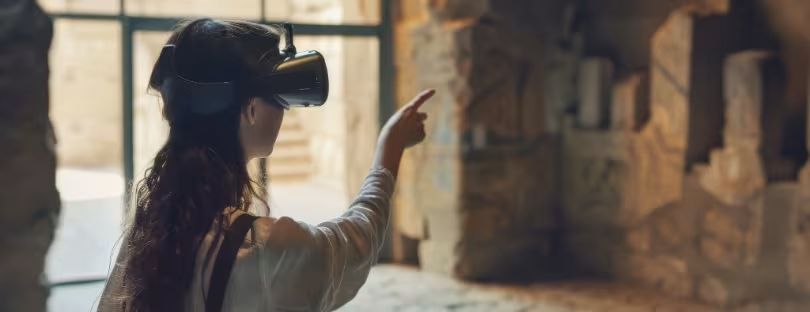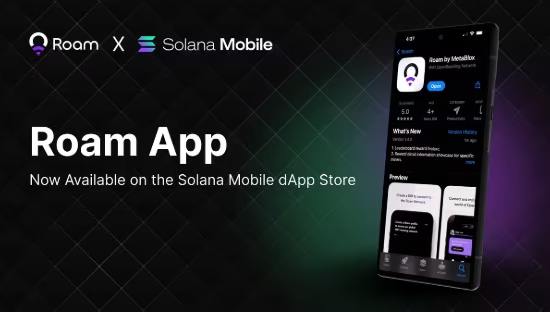
Virtual Reality in Tourism Market Soar to USD 59.9 Bn by 2033
Virtual Reality (VR) in tourism is transforming how we explore the world. Imagine walking through the streets of Paris, marveling at the Colosseum, or diving into the Great Barrier Reef—all without leaving your living room. With the VR in the tourism market projected to grow to a whopping USD 59.9 billion by 2033, this technology isn’t just a trend; it’s a game-changer.
Virtual Reality (VR) in tourism is revolutionizing the travel experience by providing immersive virtual tours that allow users to explore destinations, accommodations, and attractions remotely. This technology not only enhances the travel experience by offering interactive and lifelike tours but also serves as a valuable marketing tool within the tourism industry. Particularly in the wake of the COVID-19 pandemic, VR has gained traction as a safe and innovative way to experience travel from the comfort of one’s home.
The Surge of VR in the Travel Industry
The VR in the tourism market has seen impressive growth, with a compound annual growth rate (CAGR) of 21% from 2024 to 2033. North America leads the charge, accounting for over 37% of the market share in 2023. This rapid growth reflects a shift towards immersive travel experiences that cater to a tech-savvy audience.
The growth of this market is driven by the increasing demand for unique and personalized travel experiences and advancements in VR technology, which make these experiences more realistic and accessible. Virtual reality in the tourism market is witnessing significant growth, projected to expand at impressive rates over the next decade due to several key factors.
Why VR Is Gaining Traction
- Immersive Experiences: VR offers lifelike tours, making planning and decision-making easier.
- Safety and Accessibility: Post-pandemic, travelers seek secure and convenient ways to explore.
- Technological Advances: Improved VR headsets and multisensory features make virtual travel realistic and engaging.
Technological advancements are propelling the VR tourism market forward. Improvements in graphical fidelity, user interfaces, and integration with other digital platforms enhance the overall user experience. Additionally, the development of lighter, wireless VR headsets and the incorporation of multisensory experiences, such as touch and smell, are transforming how consumers interact with virtual environments. These innovations are not only making VR more immersive but also more accessible and affordable, further driving market growth.
Key Benefits of VR in Tourism
1. Revolutionizing Travel Planning
- Virtual tours allow travelers to “test drive” destinations, accommodations, and attractions.
- 62% of surveyed individuals found VR helpful for planning holidays.
2. Enhancing Marketing Strategies
- Hotels, travel agencies, and tourism boards use VR to showcase experiences.
- Virtual tours boost customer confidence, leading to increased bookings.
3. Promoting Cultural Heritage
- VR preserves and promotes cultural sites, making them accessible to a global audience.
- Tourists can virtually explore historical landmarks, driving interest in real-world visits.
VR Technology Driving Innovation
Advancements in VR Devices
- Hardware Dominance: VR hardware—headsets, controllers, and sensors—accounted for 47% of the market share in 2023.
- Wireless Innovations: Lighter, wireless devices improve user experience and accessibility.
- Multisensory Integration: Features like touch and smell create more immersive environments.
Integration with AI
The integration of Artificial Intelligence (AI) in Virtual Reality (VR) within the tourism industry is significantly transforming how travelers experience and plan their journeys. Here are five key impacts:
- Enhanced Personalization: AI enables the delivery of highly personalized travel experiences in VR by analyzing user preferences and behaviors. This allows for the customization of virtual tours and experiences tailored to individual interests, which can dynamically adjust based on real-time interactions.
- Improved Operational Efficiency: AI aids in automating routine tasks within VR platforms, such as content management and updates, which enhances the operational efficiency of these systems. This not only streamlines processes but also ensures that the VR content is accurate and relevant, enhancing the user experience during virtual tours.
- Data-Driven Insights: Through the analysis of large datasets, AI provides valuable insights into consumer behavior and market trends. These insights help tourism businesses to develop more targeted marketing strategies and improve their service offerings, leading to enhanced customer engagement and satisfaction.
- Interactive and Immersive Experiences: AI significantly improves the interactivity of VR applications by facilitating sophisticated user interfaces and interaction models. Features such as voice commands and chatbots enhance the accessibility and engagement of VR tours, making them more appealing and easier to navigate for a broader audience.
- Predictive Analytics and Market Adaptation: AI’s predictive analytics capabilities allow tourism companies to anticipate market demands and consumer preferences, enabling them to adapt their offerings proactively. This foresight can be crucial in aligning VR content with emerging trends and ensuring that the virtual experiences remain compelling and relevant.
Challenges in Adopting VR
Cost Barriers
- High upfront costs deter small and medium enterprises.
- Maintenance updates and skilled professionals add to expenses.
Technological Pace
- Rapid advancements require businesses to adapt continually.
- Outdated systems risk becoming irrelevant.
Regional Insights: North America Leading the Way
Technological Hub
- Cities like Silicon Valley drive VR innovation.
- High internet penetration supports VR’s widespread adoption.
Collaborative Ecosystem
- Partnerships between tech companies and travel agencies enhance virtual experiences.
- North America’s early adoption of VR positions it as a global leader.
Key Takeaways
- 73% of entrepreneurs believe VR will play a crucial role in helping customers choose destinations and accommodations.
- While only 12% of respondents currently see significant potential for VR in tourism, interest is growing.
- 62% of participants said they would find VR useful for planning holidays, especially if offered for free.
- In 2023, the hardware segment dominated the market, accounting for 47% of the total share, driven by the rising demand for VR headsets, controllers, and other immersive devices.
- Virtual tours have gained popularity, securing 45% of the market share in 2023, as they help travelers explore destinations before booking and enhance marketing efforts.
- The tourism segment, including attractions, accommodations, and travel planning, held a strong 55% market share in 2023, reflecting the widespread adoption of VR to improve traveler experiences.
- North America led the global VR travel market, capturing 37% of the market share in 2023 due to its advanced infrastructure, early adoption, and focus on innovative travel technologies.
Top Trends in VR Tourism
1. Expansion of Virtual Tours
- From iconic landmarks to local attractions, VR brings destinations closer to home.
- Travelers can explore potential vacation spots before booking.
2. Hybrid Events
- Combining physical and virtual participation broadens accessibility.
- Hybrid formats reduce environmental impact.
3. AI-Powered Personalization
- Customized itineraries and travel suggestions based on user data.
- Dynamic adjustments enhance user engagement.
4. Real Estate Integration
- Immersive property tours bridge the gap between tourism and real estate.
- Potential buyers and tourists can virtually explore properties and destinations.
5. 5G Revolution
- Faster networks enable seamless VR experiences.
- Improved accessibility makes VR more appealing to the masses.
Applications of VR in Tourism
1. Virtual Tours
- Popular among travelers, securing 45% of the market share in 2023.
- Helps users make informed decisions and boosts confidence in travel planning.
2. Destination Marketing
- Virtual experiences attract potential tourists.
- Interactive tours enhance engagement and interest.
3. Cultural Heritage Preservation
- Digital replicas of endangered sites ensure their legacy.
- Virtual access promotes global awareness and education.
4. Travel Booking Assistance
- VR simplifies the booking process by showcasing options.
- AI-powered suggestions streamline decision-making.
Key Players Shaping the Market
- Google LLC
- Oculus VR (Meta Platforms Inc.)
- Samsung Electronics Co., Ltd.
- HTC Corporation
- Microsoft Corporation
- Matterport
- Dubai 360
Future Prospects for VR in Tourism
Predictions for Growth
- Market expansion is fueled by investments in VR infrastructure.
- Increased adoption of 5G enhances accessibility and quality.
Opportunities for Businesses
- Personalized virtual experiences cater to niche markets.
- VR’s role in sustainable tourism offers eco-friendly exploration options.
Conclusion
Virtual Reality in tourism is redefining how we explore, plan, and experience travel. With its ability to offer immersive, interactive, and personalized journeys, VR has become an indispensable tool in the travel industry. Despite challenges like high costs and rapid technological changes, the benefits far outweigh the hurdles. As VR technology continues to evolve, it will likely become an integral component of the tourism industry, offering expansive opportunities for both businesses and consumers.













